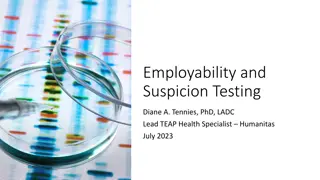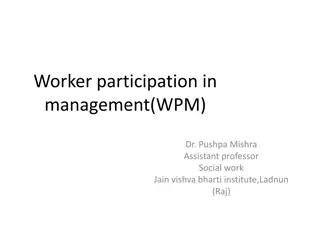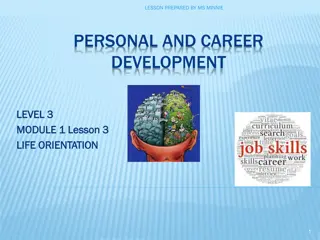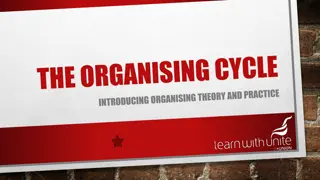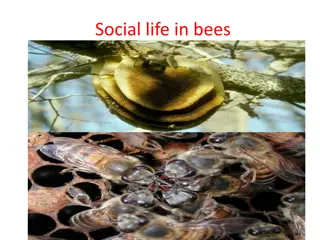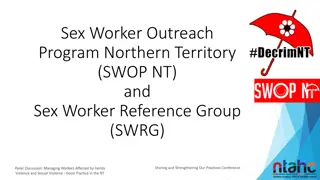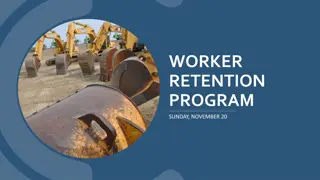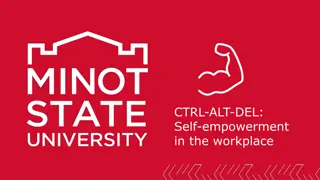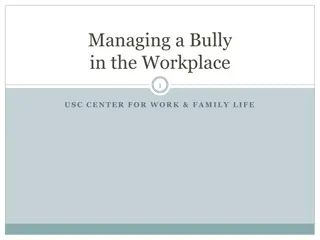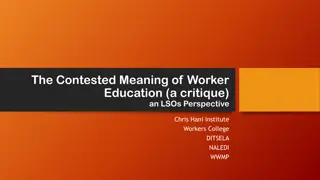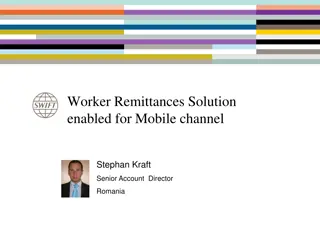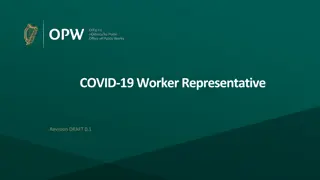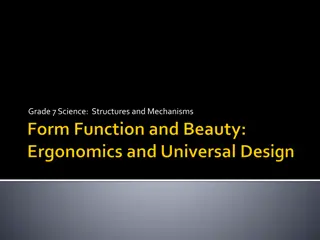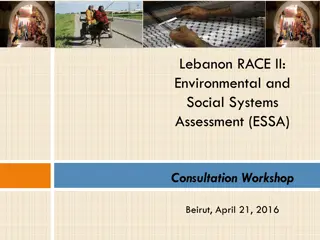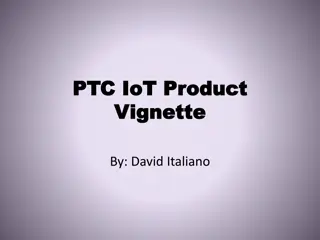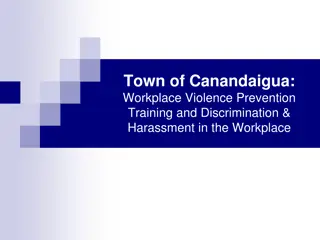Strengthening Worker Education Collaboration for Empowering Workplace Members
Enhancing worker education collaboration to empower ordinary members at the workplace level by optimizing resources, building capacity in Federations/Unions, and providing workplace-based union education during lunch breaks and general meetings. Emphasis on recognizing non-accredited training, multiplying successful programs nationally, and including TVET in worker education. Discussion on current LSOs, Universities, strengths, weaknesses, and the need for enhanced coordination.
Download Presentation

Please find below an Image/Link to download the presentation.
The content on the website is provided AS IS for your information and personal use only. It may not be sold, licensed, or shared on other websites without obtaining consent from the author. Download presentation by click this link. If you encounter any issues during the download, it is possible that the publisher has removed the file from their server.
E N D
Presentation Transcript
Worker Education Committee Commission 4 Cedar woods 9/14/20241
1. PURPOSE OF COLLABORATION The current worker education programmes do not benefit the ordinary members at the workplace level Accredited and non accredited More resources are spent on developing few shopstewards on accredited Worker Education programme Targeting same beneficiaries for different training interventions LSO have limited capacity and they become have specialised programmes LSO needs to build capacity in Federations/Unions Potential Areas WE to strengthen education at workplace level during lunch time, General meetings (Train the trainer, organisers to train shop stewards) to build the workplace-based union education for workers and members Education that is provided by the federations need to be articulated but we must give non accredited training the recognition they deserve. - - - - 2 9/14/2024
Collaboration continue Existing programmes to be multiplied Nationally as they have been tested LSO to work together in a formal structure and share their programmes the successful ones Include TVET on worker education as Universities entry level is not friendly for workers 3 9/14/2024
2. CURRENT LSOs & UNIVERSITIES DITSELA, Workers College, Industrial Health Research Group, WWMP, Labour Research Services, Khanya College, Naledi, ILRIG,CHI, CCMA Wits GLU programmes (Masters 1 yr full time , 2 years partime) Social theory programme University of KZN Neil Agget Labour Studies Unit -Rhodes University UCT & UWC Nelson Mandela Stellenbosch 4 9/14/2024
1. STRENGTH -UCT and UWC LSO is influencing management, content and delivery method WEAKNESSES Some Universities want to have a final say Universities LSO Provide ideological training for trade unions Provide Sectoral programs e.g. Health and Safety LSO parachuting their programs to the federation Battling with regard to funding Depending in same source More funds are taken by university programmes Not committed to funding their internal programs Shopstewards bank knowledge gained through training to themselves without Federations and Unions They have access to the workers 9/14/2024 5
COMMISSION 4: RECOMMENDATIONS LSOs Utilise existing LSOs by resourcing and building/growing their capacity: To strengthen the existing programmes within LSOs. Assist to residentialise the programmes that are offered at universities, to be also delivered through the LSOs. To resource the building of LSOs infrastructure to deliver these programmes. Ensure resources and support that LSOs be registered institutions by DHET and funds for accreditation of programmes (e.g. NSF support for Ditsela). Federations and LSOs to meet and identify the worker education programmes that they want to do collaboration on. WEC to organise the LSOs in trying to assist those with weaknesses and be part of the collaborations. Analyse each and every LSO to have an understanding of how workers influence their programme and how they can be articulated. 6
RECOMMENDATIONS Continue.... We need to have a worker education endowment research Chair - To professionalise worker education - Produce Human capital - Coordinate the process of collaboration - The Chair to be place with LSO s but funded by DHET - Training that are provided by the federations need to be articulated but we must give non accredited training the recognition they deserve. LSO coordination structure to take forward their worker education collaboration work. SAQA, Council for Higher Education and QCTO must recognise LSOs as worker education organisation of special type for the purposes of accreditation Call for the amendment of the RPL policy to recognise the historical disadvantages of the workers 7 9/14/2024
Recommendations continue.. Accreditation Influence the content of the institutions e.g. UCT Educator Development Sensitise the leadership of the Federation in terms of worker education, as its not all about accreditation to build support for federations. Federations Shopstewards to transfer skills, young workers are not benefiting from the training as only shop stewards are developed. Collaborate with student formations on the transformation of universities. 8 9/14/2024
THE END 9 9/14/2024


